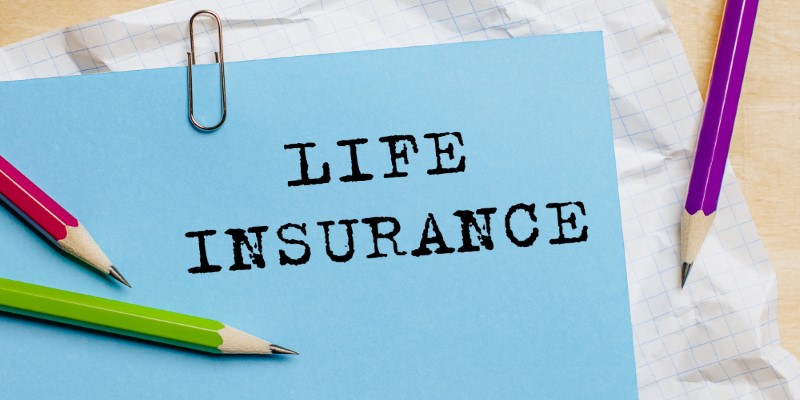So, you've decided to leap into the world of freelancing – congratulations! Being a freelancer offers the freedom to work on your terms, but with great power comes great responsibility. One of the crucial responsibilities you'll need to take seriously is securing the right insurance coverage for yourself and your freelance business. Don't worry; we're here to help you navigate this often complex terrain in a simple, no-nonsense way.
In this article, we'll break down the types of insurance that every freelancer should consider. From protecting your equipment to safeguarding against unforeseen liabilities, we've got you covered. Let's dive right in.
Exploring the Types of Insurance that a Freelancer Needs
Exploring the Types of Insurance that a Freelancer Needs can seem overwhelming at first, but breaking it down into specific categories simplifies the process. Let's dive into the essential insurance types every freelancer should consider.
Health Insurance
First things first – your health matters. As a freelancer, you won't have the luxury of employer-sponsored health insurance. It's your responsibility to ensure you have proper health coverage. You can explore various options, including purchasing an individual health insurance plan or utilizing government healthcare programs, depending on your country of residence.
Keep in mind that health insurance not only covers medical expenses but can also provide financial stability during unexpected health issues, allowing you to focus on your work without worrying about medical bills piling up.

Equipment Insurance
Next up, let's talk about your tools of the trade. Whether you're a freelance photographer, graphic designer, writer, or any other professional, your equipment is the lifeblood of your business. Imagine losing your laptop, camera, or other essential gear due to theft or accidental damage – it could be a severe setback.
This is where equipment insurance, often referred to as property insurance, comes into play. It safeguards your equipment against losses, ensuring that you can quickly get back to work without a massive financial burden. Be sure to check the policy details, as coverage may vary depending on the type and value of your equipment.
Liability Insurance
Liability insurance is a must-have for freelancers in various industries, especially if your work involves providing services or advice to clients. This type of insurance protects you from legal claims and financial losses resulting from client disputes or other unexpected incidents. There are two primary types of liability insurance you should consider:
Professional Liability Insurance: Professional services require this coverage, known as Errors and Omissions (E&O) insurance. It safeguards against legal costs and claims of financial losses or dissatisfaction caused by your work.
General Liability Insurance: This expanded coverage safeguards you against claims pertaining to bodily injury, property damage, or advertising-related injuries. It's particularly important if you have a physical business location or interact with clients in person.
Cyber Liability Insurance
In our increasingly digital world, cyber threats are a real concern for freelancers who store sensitive client data or work with online platforms. Cyber liability insurance can provide you with protection in case of data breaches, cyberattacks, or accidental data loss.
It covers the costs associated with notifying affected parties, recovering lost data, and handling legal expenses that may arise from such incidents.
Don't underestimate the importance of cyber liability insurance, as a single cyberattack can wreak havoc on your freelance business and damage your reputation.
Business Interruption Insurance
Consider this scenario: unforeseen events, such as a natural disaster or a significant health crisis, suddenly disrupt your ability to work for an extended period. In such challenging times, Business Interruption Insurance becomes your lifeline, stepping in to replace the income you would have otherwise lost.
Although not a necessity for every freelancer, those whose livelihoods depend heavily on their freelance income should seriously contemplate this coverage. It acts as a safety net, providing essential financial stability precisely when you need it most, ensuring your freelance journey remains secure during unexpected disruptions.

Worker's Compensation Insurance
Worker's compensation insurance, while not universally required for freelancers, merits consideration, especially when collaborating with fellow freelancers or employing others. This crucial coverage steps in to handle medical expenses and wage loss should you or your team sustain injuries during work.
It's important to note that the specifics of worker's compensation insurance can vary significantly depending on your location. Thorough research of your local regulations is paramount to ensure compliance and adequate protection. Your dedication to ensuring your own and your team's safety can be a valuable asset in your freelance pursuits.
Personal Auto Insurance
If you utilize your vehicle for business-related tasks, such as client meetings or traveling to work sites, it's essential to evaluate and potentially modify your auto insurance policy. Traditional personal auto insurance often falls short when accidents happen during work-related activities.
In these scenarios, acquiring a commercial auto insurance policy becomes crucial to guarantee comprehensive protection for you and your business. By making this adjustment, you can navigate your freelancing endeavors with the confidence that you have the right coverage in place, minimizing risks and potential financial burdens associated with business-related accidents.
Conclusion
In conclusion, freelancers face unique challenges and responsibilities in managing their businesses. Securing the right insurance is not just a financial decision but a crucial step towards safeguarding your career and peace of mind. Whether it's protecting your health equipment or shielding yourself from potential liabilities, insurance ensures you can focus on your work without fear of unexpected setbacks. Remember, insurance isn't an expense; it's an investment in your freelance future. So, take the time to assess your needs, consult with professionals, and tailor your coverage to protect your freelancing journey. Your success and security are well worth it.




